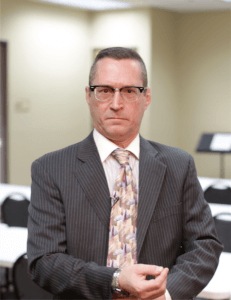Ask James: What to tell folks at home after rehab?
James would like to share those questions and responses here.

Question: After rehab, what do I tell people who ask where I’ve been?
by James Krah, JD, LADC
A question I get a lot from people who are finishing up their time in recovery is “James, when someone asks me where I’ve been for 8 weeks, how do I respond to that?”
What is challenging about this question is, you have a lot of people in recovery telling you “this is a program of honesty.” You hear it over and over in treatment, and especially in the (12-Step) rooms.
First thing first, as an adult, you don’t need to tell the entire story because here’s where the glitch happens. A lot of people in recovery take a program of total honesty for a program of full disclosure to anybody, all the time. If you sit back and take a breath on that, you’ll see that those are two entirely distinct things.
Let’s not mistake personal honesty for a program of personal disclosure to anyone who rolls up on you – you’re allowed to have your own private affairs. I like to tell people, your business is your own. You still live in a world where there is stigma.
If you want to be honest: ‘I had some personal business, I’m glad to be back – now that I’m back, where do we go from here?’”
Getting ahead of yourself in 12 Steps
For people new in 12-Step recovery, they tend to get a little bit ahead of themselves – they’re already working way down the map, searching through moral inventory [Step 4]. They may be working on Step 4, but then looking at Step 5, 6, and 7.
“Step 5, share the results of Step 4 with your higher power and one other human being.” So it’s easy to jump the gun. Feel obligated to move to step 5 and start sharing. One other human doesn’t mean any human. Hopefully, we’re selective. So some confusion can come into play unless you’re working the step with someone who knows the ropes.
When this question comes up – what do I tell people who ask where I’ve been – oftentimes I advise people, “Look, just because someone asks you where you’re at, what you’ve been doing, that doesn’t mean you’re about to do a fifth step inventory share with that person.”
The wisdom gained from step four is something you need to share with your sponsor, not the guy who drives the forklift next to you.
You’re under no compulsion to share with anybody that walks up on you. You’re allowed to have your own private affairs.
Need to Know
What do you do with curiosity seekers who just want to satisfy their own curiosity?
That’s up to you to make the call – I don’t necessarily suggest you tell people.
Ask yourself what purpose would be served other than answering this person’s curiosity – do they have a need to know? Handle that on a need to know basis.
If they need to know, they probably know already.
If you’re married, your spouse probably knows where you were; if you have kids, they probably have a good idea where you’ve been… If you have a job, and you’ve straightened out your affairs with your human resources, they already know – and they’re proscribed by law in terms of don’t get too deeply into the details of it.”
I would work on, once again, let’s not mistake honesty, personal honesty for a program of self-disclosure to everybody that rolls up on you. Number 2, remember: you need to be honest with yourself about this problem and what you need to do to solve this problem.
Be selective in who you tell

On the other hand, people in those (12-Step) rooms have a tendency to need to know. This is where the value of 12-Step comes in. You and every one of those people have gone through almost identical experiences. You will find maximum understanding with minimum judgment. It’s a recovery-supportive environment.
So the answer is, share by all means, but share with the right people – need to know – and maintain a high regard for your right to privacy.
Beware your self-defeating instincts

After this confusion about the 12-Steps and “honesty,” people tend to get two more things going on when asked to share about treatment. Number 1, they’re stigmatized by it – this is my own dirty little secret. A lot of people feel guilt; then they feel shame. This is something you have to work on, and you may find people in the rooms with insights that can help. But if you feel this way, be very careful. Don’t put yourself in the position of seeking validation from someone who has not been in treatment.
Don’t forget, too, in early recovery you’ll find a lot of people who meet the definition in their disease of being people pleasers – I don’t want to say no to you, and I want you to accept me, and I want to feel good about myself, and so I don’t have it in me to tell you that where I’ve been the last 6 weeks is really none of your concern.
Believe it or not, you can ask somebody to mind their own business – it might not be as gentle as a lot of people prefer.
I like to go along the lines of ‘that’s personal,’ short and sweet. And then turn it around: “I’ve been gone for four, five weeks, what’s been happening the past 4, 5 6 weeks; what’s been going on with you guys?”
7 Takeaways (Post-rehab, what do I tell people who ask where I’ve been?)
- Don’t confuse “honesty” with “full disclosure.”
- Don’t let your “people-pleasing” urges intimidate you to over share.
- Share with the right people, such as your 12-Step group.
- Share on a “need to know” basis.
- Own your right to privacy
- Deflect (“It’s personal.”)
- Redirect (“What have you been doing?” “Where do we go from here?”)
—–

